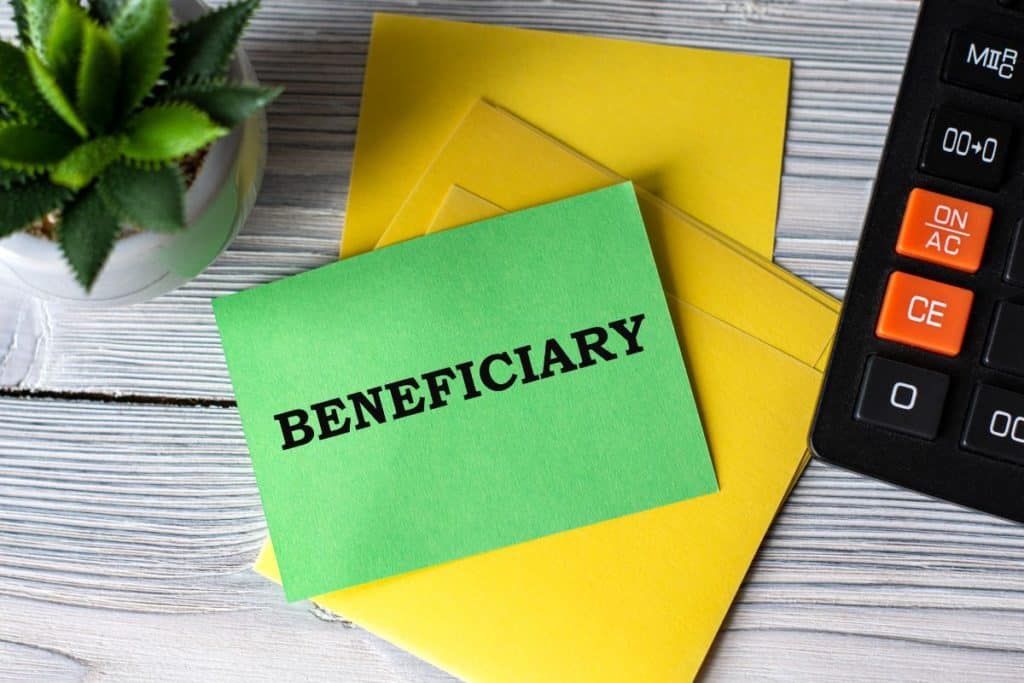As an estate planning attorney, my goal is to ensure that your assets are distributed to the correct beneficiaries in the manner you intended. We hear people frequently ask about pay-on-death and beneficiary designations. These are a direct and easy way to give an inheritance—but should only be implemented into an estate plan with the guidance of an experienced estate planning attorney.
Pay-on-death and beneficiary designations are often recommended by financial professionals and institutions and can, in fact, avoid probate. However, this advice is usually not given holistically with your estate plan in mind. There are numerous ways for things to go wrong when people rely on designations to distribute their estate, which is why many estate planning attorneys are careful to recommend them unless under very specific circumstances and with a thorough understanding of each and every client’s situation.
1. Inflexible Institutional Rules
It may be easy enough to designate beneficiaries and even multiple beneficiaries in various proportions, but in our experience, sometimes rigid rules at financial institutions are not designed with your unique life circumstances in mind. A common “one-size-fits-all” rule that accountholders face is the inability to designate multiple “layers” of beneficiaries. For example, if your beneficiary dies before you do, often there’s no option to name another recipient. In a perfect world, we could trust one beneficiary to treat the others fairly and split their inheritance according to your wishes. However, there is no guarantee they will do so.
2. Direct Distribution May Not Be Ideal
Wills and trusts are frequently designed to avoid direct distributions to children and loved ones with a disability to avoid costly guardianship processes. Unfortunately, this drafting protection is lost when assets are passed to our loved ones with pay-on-death distributions.
Minors are limited in their ability to inherit money before reaching the age of majority, so it is preferable to set up a trust and name the trust as the beneficiary of the asset until the minor reaches a specified age. In that case, it’s also a great idea to include precise instructions to the trustee on how to manage the funds for the child until they can handle the funds themselves— this can be at any age you designate in the trust.
Account assets are sometimes used to leave property to a trusted adult with the expectation that the assets will be used to support a minor or disabled loved one. There is, however, no legal requirement that they do so. This is a risky technique because there are numerous other possibilities for failure, some of which are outside of the person’s control—for instance, naming a trusted adult beneficiary who is intended to disperse the money in the account to other beneficiaries but cannot due to incapacity.
3. An Adult Beneficiary’s Inability to Manage Money
Even if your beneficiaries are adults, you may be concerned that some of them will have unrestricted access to the accounts you named them under. If you have financially irresponsible beneficiaries, beneficiaries that have an addiction, are in a bad marriage, have a fragile business, or are simply inexperienced with money, there may be better solutions than giving them money directly. As outlined above, you can also utilize a trust in this scenario to control the distribution of these assets to your chosen beneficiaries.
4. Not Reviewing or Updating Designations
Most of us nowadays are incredibly busy and more distracted. It is easier than ever to forget or put off completing designations. However, a person must review accounts regularly to ensure that they still reflect their wishes and avoid accidentally leaving out someone they wanted to include or that someone who is no longer in the person’s life inherits through the designation. For example, after a divorce, it is a good idea to name a beneficiary other than the ex-spouse for life insurance policies and retirement accounts, such as a trust for any children from the marriage. While divorce may technically nullify such designations it is preferable to avoid conflict (or unintended probate) by doing so during your lifetime.
5. Not Having Enough Liquidity to Pay Liabilities
When assets are subject to a will or trust, they are made available to pay the deceased’s bills and expenses. However, it is important to know that if your account distributions cover so much of your overall assets that there isn’t enough left to pay liabilities, your fiduciary (executor or trustee) may have to pursue your beneficiaries for contributions. One of the primary goals of estate planning is to make the lives of your loved ones easier when you die, and avoiding liquidity issues is a big part of achieving this goal.
We Can Help Create an Estate Plan and Protect Your Beneficiaries
The best approach is to get help conceiving a complete estate plan, taking all account provisions into consideration alongside one’s will and any trusts that may need to be created. A good place to start your journey to get things right is attending one of Promise Law’s free estate planning workshops. These workshops provide a great foundation of information that everyone needs to make sound planning decisions. Moreover, if you attend a workshop, you also get a complimentary one-on-one consultation with an estate planning attorney.




